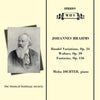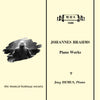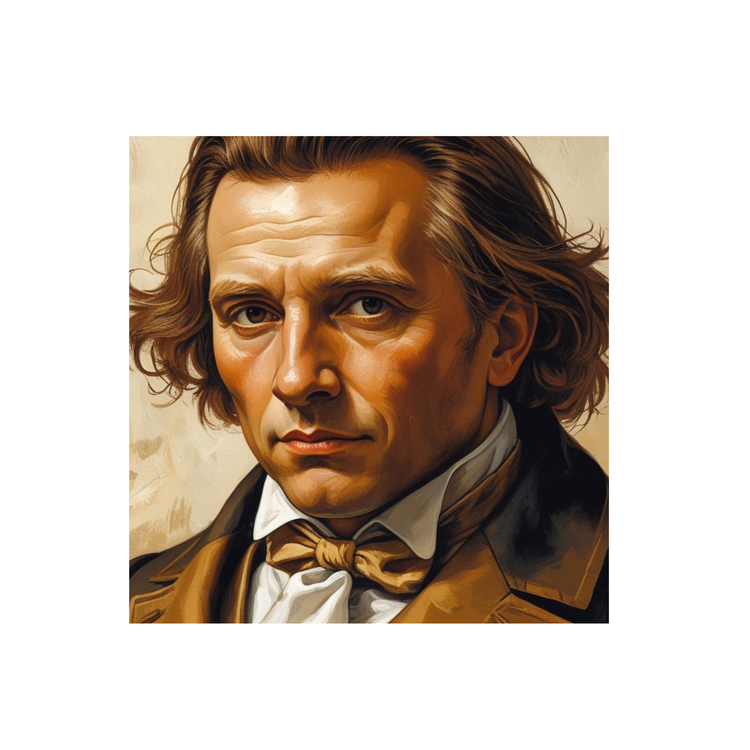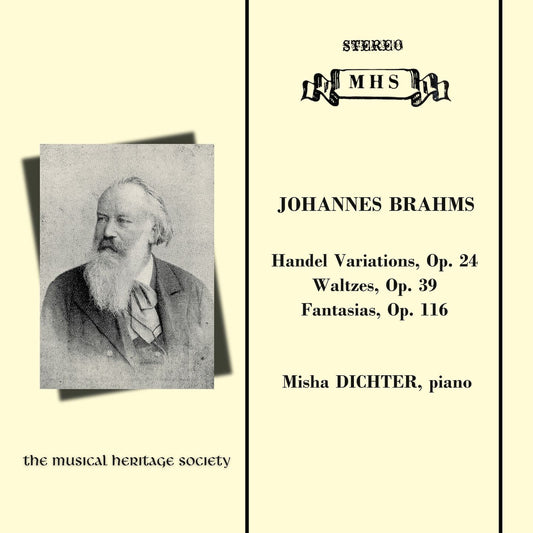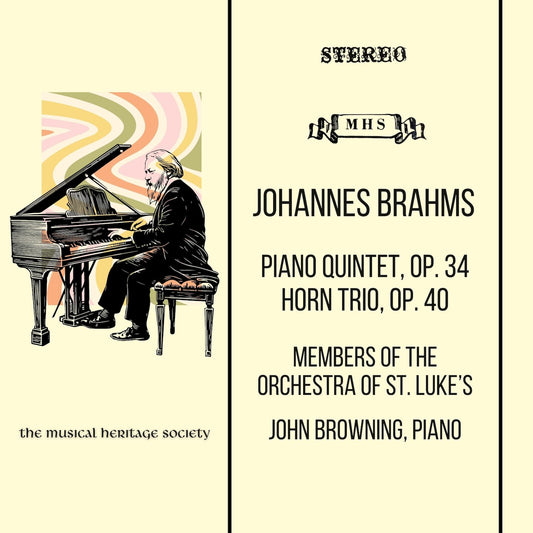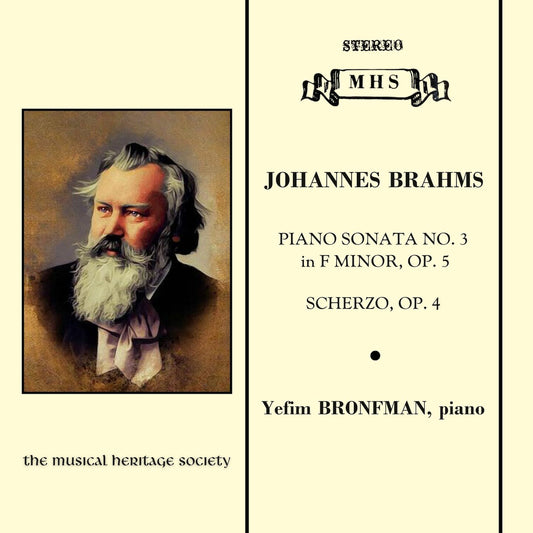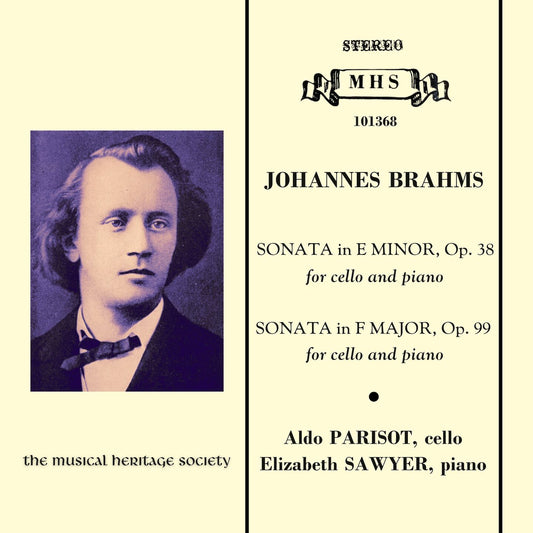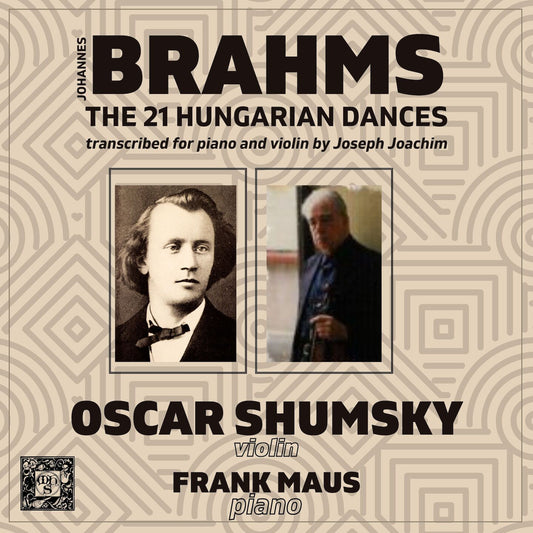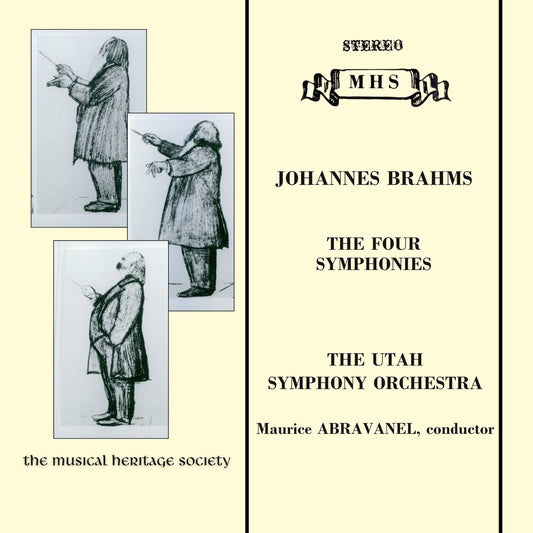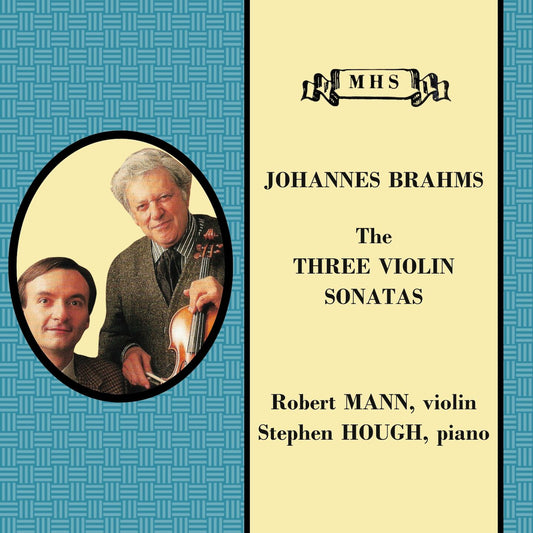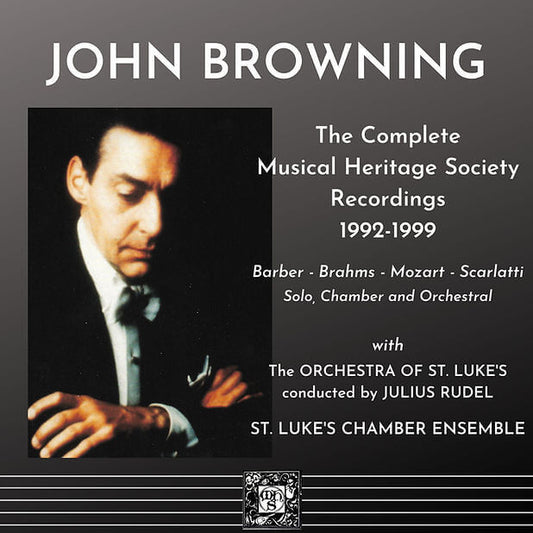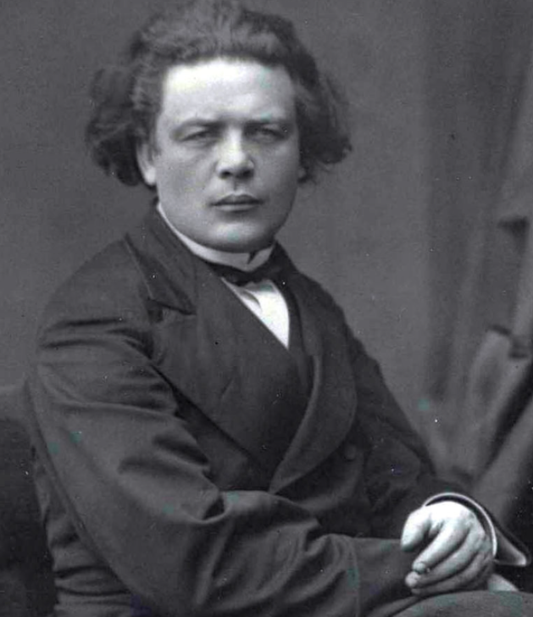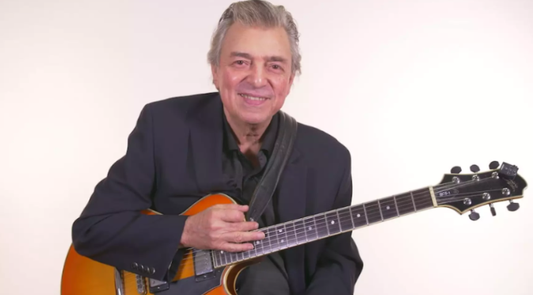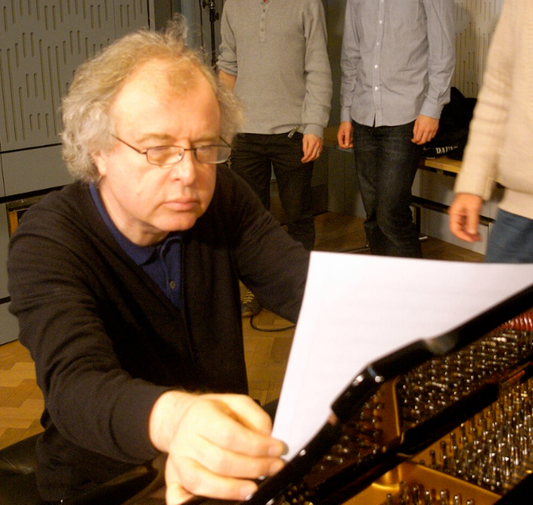Collection: JOHANNES BRAHMS (1833 – 1897)
Johannes Brahms (May 7, 1833 – April 3, 1897) stands as one of the towering figures of the Romantic era, a composer revered for his mastery of traditional forms, profound emotional depth, and unparalleled craftsmanship. Often grouped with Bach and Beethoven as one of the "Three Bs" of German music, Brahms navigated the turbulent musical landscape of the 19th century by synthesizing the structural clarity of Classicism with the expressive intensity of Romanticism, creating a body of work known for its rich harmonies, complex rhythms, and deeply felt lyricism.
Born in Hamburg into a modest family, Brahms's musical talent was recognized early. His father, a jobbing musician who played double bass and horn, arranged for the young Johannes to study piano and music theory, eventually placing him under the tutelage of the respected Eduard Marxsen. Marxsen instilled in Brahms a deep reverence for the music of Bach, Haydn, Mozart, and especially Beethoven, grounding him thoroughly in counterpoint and classical forms – a foundation that would profoundly shape his compositional outlook. To help support his family, the young Brahms played piano in taverns and dance halls, experiences that, while potentially difficult, likely exposed him to popular and folk music styles that would later surface in his compositions.
A pivotal moment occurred in 1853 when Brahms, then 20, embarked on a concert tour and met the celebrated violinist Joseph Joachim. Joachim was immensely impressed and provided Brahms with an introduction to Robert and Clara Schumann in Düsseldorf. This encounter was life-changing. Robert Schumann, a leading composer and influential critic, immediately recognized Brahms's genius, famously hailing him in an article titled "Neue Bahnen" ("New Paths") as the chosen one destined to "give ideal expression to the times." This public anointment launched Brahms's career but also placed immense expectations upon him. More profoundly, it marked the beginning of a complex, devoted, and lifelong relationship with both Schumanns. After Robert's tragic mental breakdown and early death in 1856, Brahms became a crucial source of support for Clara, a renowned pianist and composer herself. Their deep bond, a mixture of profound friendship, artistic collaboration, and arguably unrequited love on Brahms's part, remained central to his life.
Reluctant to take on permanent positions for long, Brahms eventually settled in Vienna in the early 1860s, which remained his home base for the rest of his life. He established himself primarily as a freelance composer, though he held temporary conducting posts. He gained renown through works like the Piano Quintet (1864) and especially his monumental Ein deutsches Requiem (A German Requiem, completed 1868). Unlike the traditional Latin Requiem Mass, this large-scale work for chorus, orchestra, and soloists used German texts selected by Brahms from the Lutheran Bible, focusing on solace and comfort for the living rather than judgment for the dead. Its profound humanity and masterful construction cemented Brahms's international reputation.
Brahms was famously self-critical, particularly regarding the symphony, labouring under the shadow of Beethoven. He worked on his First Symphony for over two decades, finally completing it in 1876. Often dubbed "Beethoven's Tenth" (a label Brahms disliked), it triumphantly demonstrated his ability to master the form while forging his own distinctive voice. He followed it with three more symphonies, each a masterpiece of structure and expression.
His output encompasses nearly every genre except opera. His orchestral works include two towering piano concertos, a sublime Violin Concerto, the Double Concerto for Violin and Cello, the popular Variations on a Theme by Haydn, the celebratory Academic Festival Overture, and the stern Tragic Overture. He was a prolific composer of chamber music, producing numerous sonatas, trios, quartets, quintets, and sextets that are considered cornerstones of the repertoire. His works for solo piano range from youthful sonatas to the introspective collections of character pieces (Intermezzi, Capriccios, Rhapsodies) composed in his later years. He also wrote hundreds of exquisite Lieder (art songs).
Known for his gruff exterior, bushy beard, and often sarcastic wit, Brahms was intensely private and deeply loyal to his close circle of friends. He never married. He remained a staunch traditionalist in an age dominated by the revolutionary music dramas of Richard Wagner and the programmatic works of Franz Liszt, upholding the importance of absolute music and classical structure.
Johannes Brahms died of liver cancer in Vienna in 1897. His legacy is that of a musical giant who created works of immense intellectual rigor and profound emotional resonance, seamlessly blending the formal discipline of the past with the rich harmonic language and expressive depth of his own time.


